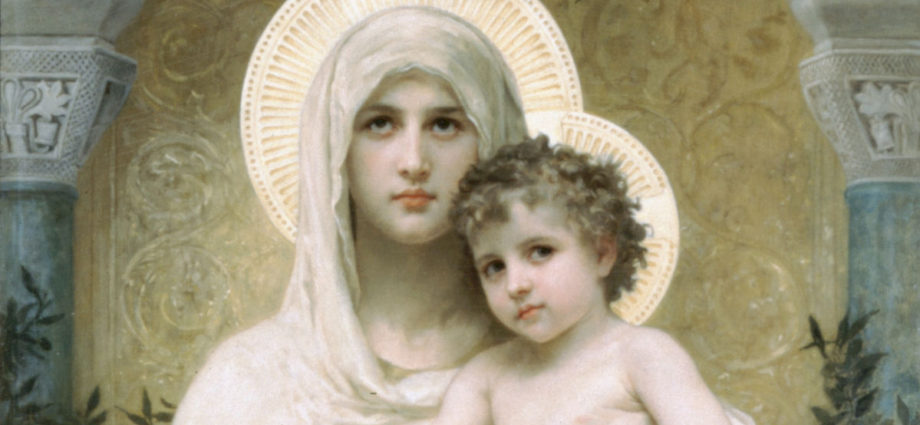Today is the feast day in which we honor the name of Mary, the Mother of God. The readings are extremely apropos for that. Why? Because they talk about exactly why we honor her. Of all the people who have ever existed, she is the one who best embodies what it means to be a disciple of Jesus. In the Letter to the Colossians, St. Paul reminds us that we as believers are supposed to be filled with specific signs, characteristics. Holy and beloved, heartfelt compassion, kindness, humility, gentleness, and patience, bearing with one another and forgiving one another. We are supposed to be thankful and grateful in all we do, whether in good times or bad. Not because of anything we’ve done to deserve it, but from the sheer grace of God’s love for us which is shown in it’s fullest expression by Jesus Christ’s sacrifice on the cross.
Mary embodied all of that in everything she did. When God explained to a young girl that she would be taken through this ordeal of becoming pregnant out of wedlock, giving birth to a son who was God and then to watch as the plan of salvation would unfold; her response was “be it done unto me according to thy word.” That’s a serious amount of faith. It’s a faith that we should honor, a faith that gave us the Magnificat in which the Scriptures state that “all generations will call me blessed.” And so we Catholics do. We remember her, we ask her to pray for us, and we honor what she did. We also realize that in Mary is a glimpse of the same promises that were made to us by Jesus. All of the doctrines and dogmas concerning Mary speak to the glory of her Son, and as she did at Cana, even today she continues to say “Do whatever He tells you.”
So how do we then express our gratitude? Our thanksgiving? I think both the Gospel and the first reading express it well. “And whatever you do, in word or in deed, do everything in the name of the Lord Jesus, giving thanks to God the Father through him.” No other sacrifice, no other name under heaven and earth, can ever compare to that of Jesus on the cross. It is through His death and resurrection that we are given the opportunity for redemption and the forgiveness of sins. In the Sacraments, we come face to face with that reality. We encounter Jesus Himself, and we offer the only gift worth giving back to the Father in thanksgiving and gratitude. It’s not enough to just receive though. Today’s gospel calls us to radical forgiveness, a love that sacrifices for the “other.”
On the day after 9/11, it’s easy to fall into the trap of hating. Lives were lost. Maybe even harder to deal with, our innocence, our feeling of safety was ripped away. We should never forget, that is true. We also must be careful not to blame the innocent for the atrocities that were committed. There are radical people out there who will hurt us if given the chance. That’s a reality we must face. How do we respond though? For us Christians, it’s a hard line to walk. Jesus calls to us: to you who hear I say, love your enemies, do good to those who hate you, bless those who curse you, pray for those who mistreat you. To the person who strikes you on one cheek, offer the other one as well, and from the person who takes your cloak, do not withhold even your tunic. [..] love your enemies and do good to them.”
Then perhaps the most often misquoted passage in Scripture:
“Stop judging and you will not be judged. Stop condemning and you will not be condemned. Forgive and you will be forgiven. Give and gifts will be given to you; a good measure, packed together, shaken down, and overflowing, will be poured into your lap. For the measure with which you measure will in return be measured out to you.”
How do we live out such a harsh reality? Love. Love doesn’t mean forgetting, for that would be a disservice to those who died. Love also doesn’t mean leaving the door open for future attacks and hardships, though one could try to say turning the other check suggests that. What love does is forgive. It attempts to understand. It returns good instead of evil. It asks the question, how can I will the good for this person? All of which I would say is to simply start in prayer. No prayer is better, no prayer more efficient, than that of the Eucharist, offered back to the Father in thanksgiving and gratitude, for the ones we forgive and especially for those we struggle to pardon.

